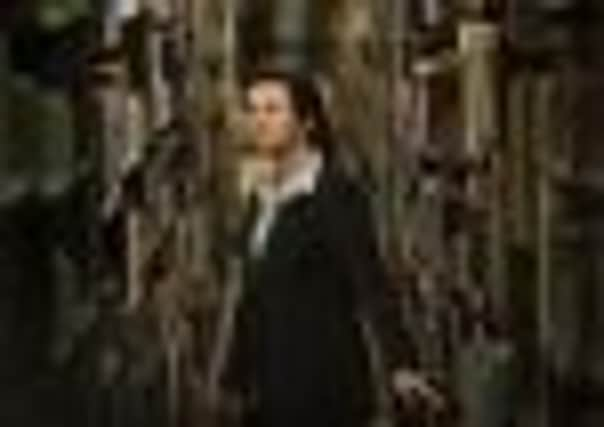Bitter twist to this shocking scandal


Loach Junior, who has clearly inherited father Ken Loach’s desire to highlight social injustice, tells the disturbing true tale of emotionally-scarred adults who were illegally deported when the children from Britain to Australia in the 1940s and 1950s.
It was a secret the British Government kept hidden for years – that the adopted children were promised oranges and sunshine but instead they got hard labour, abuse and life in institutions.
Advertisement
Hide AdAdvertisement
Hide AdMargaret, played by an excellent Emily Watson, learns of this shameful scandal in the 1980s and sets about reuniting thousands of families while bringing the story to the world stage as she sets the authorities to account.
She stumbles on this story one night in Nottingham when confronted by Australian woman Charlotte (Federay Holmes) who wants to put an end to agonising years of not knowing who she really is.
Lovingly supported by husband Merv (Richard Dillane), Margaret discovers Charlotte is one of many British children who were removed from children’s homes and ‘unfit’ mothers and sent to Australia ‘for their own good’.
She soon becomes a woman on a mission, reuniting Charlotte with her mother and later Englishwoman Nicky (Lorraine Ashbourne) with long-lost brother Jack (Hugo Weaving).
Advertisement
Hide AdAdvertisement
Hide AdIt is not long before she is swamped by enquiries from hundreds of Jacks and Charlottes, many of whom were told as children that their parents were dead.
Rona Munro’s script adaptation of Humphrey’s 1996 book Empty Cradles delivers a story that is faithful and factual in more of a documentary style than emotional weepie.
The heartbreaking and uncomfortable stories Margaret hears throughout are told soberly, simply and straighforwardly – they are shocking enough in their own right to be told without any sensationalism or gimmicks.
Deportees such as Jack discuss the emptiness of never knowing who they are or how worthless they feel after years of physical and mental abuse in orphanages.
Advertisement
Hide AdAdvertisement
Hide AdWeaving delivers a subtle but powerful performance and one of the most memorable of the film when Margaret breaks the devastating news that his real mother died only just a year ago. Jack may be a fully-grown adult but you can still see the hurt and frightened child in his eyes.
One of the few exceptions is Len (David Wenham) – a cynical and somewhat brutish man who appears to be largely unscarred by his time at Bindoon – a sprawling mansion run by the Christian Brothers in the remote bush south of Perth.
Now a benefactor of this remote orphanage where unspeakable acts are said to have taken place, he takes Margaret back to the painful past and exacts revenge with a calm and controlled fury.
Some may find the film too slow and therefore too distant at times, but its subtlety and compassion is where its real power lies.
Advertisement
Hide AdAdvertisement
Hide AdWatson is sublime as the upright but compassionate and determined champion of victims’ rights and she is superbly supported by Weaving, Wenham and Dillane as the men who help her on her journey for justice.
Without giving too much away, it’s not until the end we are told exactly how long Margaret had to wait before she succeeded with her mission – leaving plenty of room for reflection on the wider issues long after the film has finished.
by Chantal Spittles
star rating HHHH